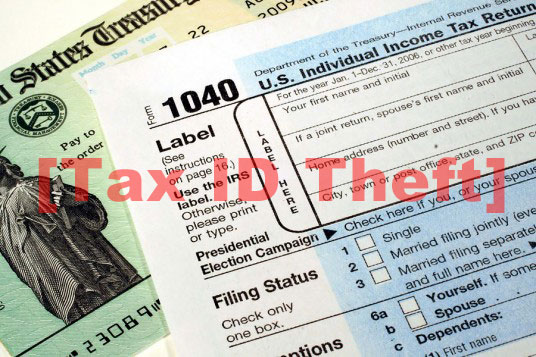Protect Your Taxes from Prying & Spying Eyes
The IRS admittedly has little control over protecting your tax returns against identity theft. The problem is too big, the data too widely available, prevention too rarely attended to until it’s already too late.
Your tax returns are the Holy Grail of identity theft because they contain virtually every piece of information a fraudster needs to BECOME you. But you don’t have to be a victim; you simply need to take responsibility for what is rightfully yours – your tax return information and your identity. The changes aren’t difficult, they simply require you read through this document so that you recognize the risks. Once that’s done, you simply avoid the highest-risk behaviors.
Here is a comprehensive list of frauds, scams and high risk tax-time practices.
Top Tips for Tax Time Identity Theft Protection
One of the least recognized risks for identity theft during tax season comes from your tax preparer (if you use one) either because they are dishonest (less likely) or because they are careless with your sensitive documents (more likely). Just walk into a tax-preparers office on April 1 and ask yourself how easy it would be to walk off with a few client folders containing mounds of profitable identity. The devil is in the disorganization. Effective Solutions:
- Choose your preparer wisely. How well do you know the person and company preparing your taxes? Did they come personally recommended, or could they be earning cash on the side by selling your personal information. Do they have an established record and are they recommended by the Better Business Bureau?
- Interview your preparer before you turn over sensitive information. Ask them exactly how they protect your privacy (do they have a privacy policy?). Are they meeting with you in a room full of client files, or do they take you to a neutral, data-free, conference room or office? Do they leave files out on their desk for the cleaning service to access at night, or do they lock your documents in a filing cabinet or behind a secure office door? Do they protect their computers with everything listed in the next section?
- Asking professional tax preparers these questions sends them a message that you are watching! Identity thieves tend to stay away from people they know are actively monitoring for fraud. Remember, losing your identity inside of their accounting or bookkeeping business poses a tremendous legal liability to their livelihood.
- Make sure you always (not just at tax time) pay with security checks.
Secure Computers. Last year, more than 80 million Americans filed their tax returns electronically. To prevent electronic identity theft, you must take the necessary steps to protect your computer, network and wireless connection. Additionally, your tax preparer should be working only on a secured computer, network and internet connection. Hire a professional to implement the following security measures:
- Strong alpha-numeric passwords that keep strangers out of your system
- Anti-virus and anti-spyware software configured with automatic updates
- Encrypted hard drives or folders (especially for your tax preparer)
- Automatic operating system updates and security patches
- An encrypted wireless network protection
- A firewall between your computer and the internet
- Remove all file-sharing programs from your computer (limewire, napster, etc.)
Even though you use a strong password to protect your data file when e-filing, burn the file to a CD or flash drive once you’ve filed. Remove the personal information from the hard drive. Store the backup in a lock box or safe.
Private information should be transmitted by phone using your cell or land line (don’t use cordless phones). In addition, never email your private information to anyone unless you are totally confident that you are using encrypted email. This is a rarity, so don’t assume you have it. In a pinch, you can email password protected PDF documents, though these are relatively easy to hack.
Stop Falling for IRS Scams. We have a heightened response mechanism during tax season; we don’t want to raise any red flags with the IRS, so we tend to give our personal information without much thought. We are primed to be socially engineered. Here’s how to combat the problem:
- Make your default answer, “No”. When someone asks for your Social Security Number or other identifying information, refuse until you are completely comfortable that they are legitimate. Verify their credentials by calling them back on a published number for the IRS.
- If someone promises you (by phone, fax, mail, or in person) to drastically reduce your tax bill or speed up your tax return, don’t believe them until you have done your homework (call the IRS directly if you have to). These schemes flourish when the government issues economic stimulus checks and IRS refunds.
- If anyone asks you for information in order to send you your check, they are scamming for your identity. The IRS already knows where you live (and where to send your rebate)! By the way, the IRS will NEVER email you for any reason (e.g., promising a refund, requesting information, threatening you).
- To learn more about IRS scams, visit the only legitimate IRS website. If you are hit by an IRS scam, contact the IRS’s Taxpayer Advocate Service.
- If your tax records are not currently affected by identity theft, but you believe you may be at risk due to a lost wallet, questionable credit card activity, or credit report, you need to provide the IRS with proof of your identity. You should submit a copy of your valid government-issued identification, such as a Social Security card, driver’s license or passport, along with a copy of a police report and/or a completed IRS Form 14039, Identity Theft Affidavit, which should be faxed to the IRS at 978-684-4542. Please be sure to write clearly.
- As an option, you can also contact the IRS Identity Protection Specialized Unit, toll-free at 800-908-4490. IPSU hours of Operation: Monday – Friday, 7:00 a.m. – 7:00 p.m. your local time (Alaska & Hawaii follow Pacific Time).
- If you have information about the identity thief that impacted your personal information negatively, file an online complaint with the Internet Crime Complaint Center. The IC3 gives victims of cyber crime a convenient and easy-to-use reporting mechanism that alerts authorities of suspected criminal or civil violations. IC3 sends every complaint to one or more law enforcement or regulatory agencies that have jurisdiction over the matter.
- Subscribe to an identity theft detection, protection and resolution product.
Mail Safely. A good deal of identity theft takes place while tax documents or supporting material are being sent through the mail. If you are sending your tax return through the mail, follow these steps:
- Walk the envelope inside of the post office and hand it to an employee. Too much mail is stolen out of the blue USPS mailboxes and driveway mailboxes that we use for everything else to make them safe.
- Send your return by certified mail so that you know it has arrived safely. This sends a message to each mail carrier that they had better provide extra protection to the document they are carrying.
- Consider filing electronically so that you take mail out of the equation. Make sure that you have a well-protected computer (discussed above).
Shred and Store Safely. Any copies of tax documents that you no longer need can be shredded using a confetti shredder. Store all tax records, documents and related materials in a secure fire safe. I recommend spending the extra money to have your safe bolted into your home so that a thief can’t walk away with your entire identity portfolio. Make sure that your tax provider appropriately destroys and locks up any lingering pieces of your identity as well. Tax returns provide more of your private information in a single place than almost any other document in our lives. Don’t waste your tax refund recovering from this crime.
John Sileo is an award-winning author and international speaker on the dark art of deception (identity theft, data privacy, social media manipulation) and its polar opposite, the powerful use of trust, to achieve success. He is CEO of The Sileo Group, which advises teams on how to multiply performance by building a culture of deep trust. His clients include the Department of Defense, Pfizer, the FDIC, and Homeland Security. Sample his Keynote Presentation (he shares how he lost $300,000, 2 years and his business to data breach) or watch him on Anderson Cooper, 60 Minutes or Fox Business. 1.800.258.8076.
Sorry, comments for this entry are closed at this time.











1 Responses to Protect Your Taxes from Prying & Spying Eyes
Great article John. I would just add that for taxpayers planning to e-file their tax returns, the IRS recommends use of a strong password. Afterwards, save the file to a CD or flash drive and keep it in a secure location. Then delete the personal return information from the computer hard drive.